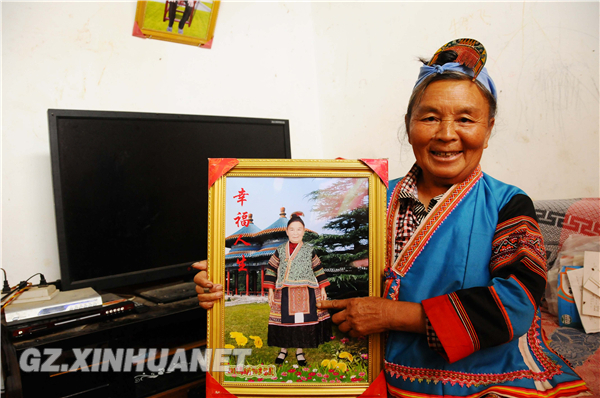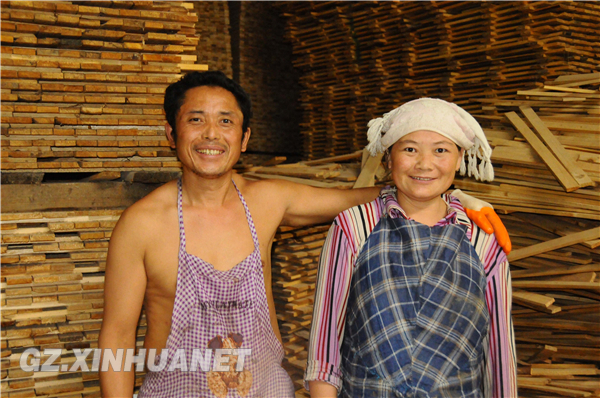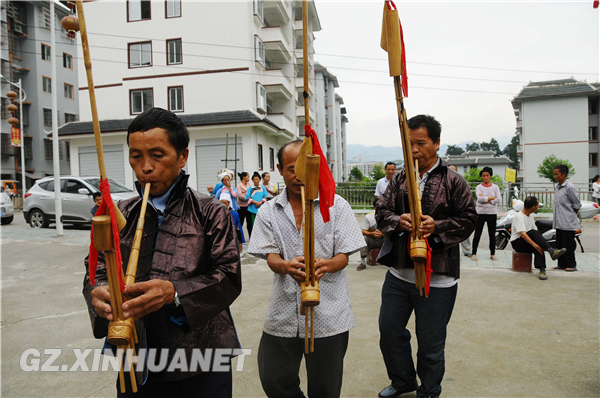Ecological migration plan to bring a better life
chinadaily.com.cn, October 14, 2014 Adjust font size:
"Because of the Guizhou provincial government's village relocation plan, our whole village is moving to the city. Now my wife and I can earn 6000-7000 RMB ($976.17) a month, which doubles our monthly income from before," said Shi Yanfu, a former ethnic Miao villager living before in the Yueliang mountain of the Qiandongnan Miao and Dong Autonomous Prefecture.
 |
|
An ethnic Miao ecological migrant shows her photo to the journalist. [Photo/Xinhua] |
Guizhou's ecological migration for poverty alleviation project started in 2012, and it plans to relocate as many as 1.03 million residents living in the remote areas, mountainous areas and stony diversification areas of Guizhou province to towns and cities, with convenient transportation, and good education and living conditions.
The action is the best way to help those people out of poverty and live a quality life.
In early 2013, 303 ethnic Miao and Shui households in the remote areas of Rongjiang county moved to Rongjiang town center, under the support of the local government.
 |
|
"Because of the Guizhou provincial government's village relocation plan, our whole village is moving to the city. Now my wife and I can earn 6000-7000 RMB ($976.17) a month, which doubles our monthly income from before," said Shi Yanfu, a former ethnic Miao villager living before in the Yueliang mountain of the Qiandongnan Miao and Dong Autonomous Prefecture.[Photo/Xinhua] |
"Under the help of the local government, we were relocated to a pleasant residential area. Also, considering our job problem, the local government provided job training to us and helped us with job hunting," said Pan Yongxiang, one of the 303 ecological migrants.
Pan Qimei, a 27-year-old ethnic Shui woman, is also one of them. She started her new life after relocation, by opening a baseball workshop.
 |
|
The ecological migrants' happy life in their new homes. [Photo/Xinhua] |
"We produce hand-made baseballs and they are mainly exported. Our business is growing day by day," said Pan.
The relocation plan also improved education conditions, "Before that, it took two hours to walk to school, and now, my son can go to the primary school nearby, which only takes 10 minutes," said Yang Shenggao, a 41-year-old ethnic Bouyei migrant.
According to Wang Yingzheng, director of the Guizhou reservoir and ecological migration bureau, between 2012 and 2013, approximately 250,000 people in Guizhou were relocated.


